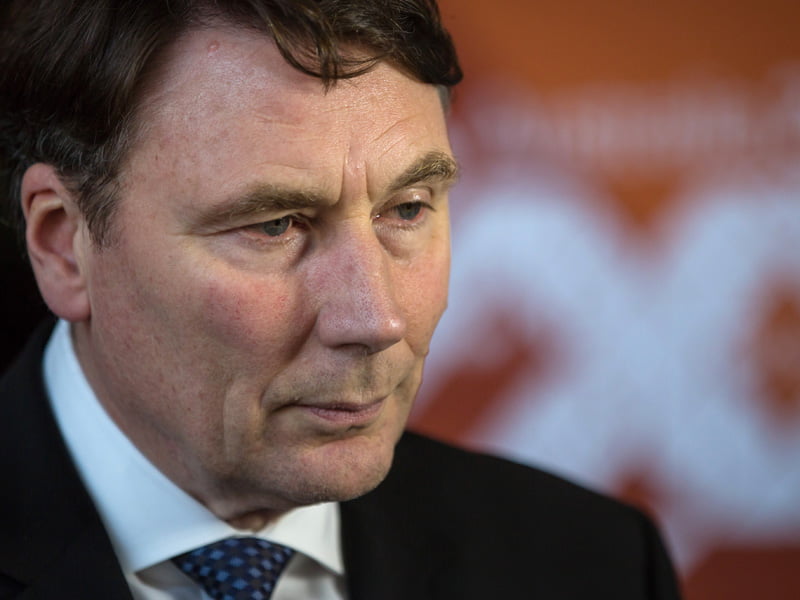For all of the loud and powerful corporate voices who are comfortable telling government and the rest of us what to do, there is one that is trusted above the rest. Former Telstra CEO and current CSIRO chairman David Thodey long-ago established himself as corporate Australia’s voice of reason.
People listen to him, whether he is talking to boards of directors or to shareholders or, through his role at the CSIRO, to taxpayers.
Last week his message was to the corporate boards of Australia when he addressed an AIIA event on “Maintaining Australia’s Corporate Competitive in a Digital World.” He backed it up with a similar speech at The Australian’s Knowledge Nation conference.

Mr Thodey talks about digital disruption in terms of the opportunity it presents rather than the risk and challenges it poses.
But he argues that right now Australian corporates are not sufficiently prepared to take advantage of digital transformation, so you would have to hope that they are listening.
Too few of Australia’s business leaders have spent the time to fully understand the changing landscape. And too few have made the connection between the disruptive technology and the need for a change of business culture to take advantage of those disruptive forces.
According to Mr Thodey, the board-level executives he interacts with probably have less of a sense of urgency that than they need, and have only partially engaged with corporate innovation strategies.
In short, he is suggesting – directly – that Australian businesses is not moving hard enough and it is not moving fast enough.
Here’s the thing. When it’s the voice of reason is telling corporate Australia that they are moving too slow, you would have to hope they’re listening.
Mr Thodey has been an outspoken supporter of Malcolm Turnbull’s National Innovation and Science Agenda as a strong set of underlying policies. It’s pillars of collaboration, talent and skills, culture and capital, and Government as an exemplar are all strong initiatives.
“I am a great believer in the importance of supporting dynamic start-ups and entrepreneurs; celebrating innovation and innovators; we do need more accelerators and incubators; we need more commercialisation of research; we need more collaboration between industry-government-academics and researchers; we need more capital and better incentives to support early stage companies and we do need to be less risk-averse in digital innovation,” Mr Thodey said.
“We need Australian Corporations to take advantage of these digital opportunities – to transform their businesses and capitalise on this disruption,” he said. “Australian Corporations have an opportunity to redesign their businesses, invest more in innovation and expand globally at a faster rate.”
“The critical question I would ask is whether Australian corporates are seizing on the opportunities of digital transformation as rapidly as we need to – are our aspirations BOLD enough -and are we really thinking globally.”
This is an excellent speech and I would certainly recommend reading its full length. Mr Thodey draws on some of his experiences at Telstra to illustrate points, especially about strategies for cultural change.
For example, he is a believer in corporates being active participants in the startup and innovation ecosystems – as a means to both technology transfer as well as cultural change.
Some corporations invite entrepreneurial companies to work with them to digitally enable processes, or leverage digital opportunities – which drives faster innovation. Participation in incubators and corporate VCs also helps this process.
“Our experience at Telstra with the Telstra Ventures and the incubator Muru-D was more about the culture change and technology transfer these initiatives brought to the company than it was about the financial returns,” Mr Thodey said.
He says boards and management teams must include exposure to digital innovators. This is some that high-profile startup leader Jonathan Barouch has written about extensively in the past couple of years.
Mr Barouch, who is CEO of social intelligence outfit Local Measure, has long argued that boardroom diversity is as much about skills and expertise as it is about age and gender. And secondly he has pushed the notion that cultural change is both a top-down and bottom up exercise.
Cultural change is hard. It can’t be faked. It takes incremental actions and incremental change. David Thodey has huge insight here. Part of its about goal-setting, part of it is in investments in people and processes, part of it’s about internal and external messaging.
Collectively our aspiration, he says is to make Australia one of the top innovation centres in the world (and definitely for Asia.)
“We must do more than just celebrate innovation – we must invest in innovation – in process redesign, product design, technology and the behaviours of the people working in our corporations,” he said.
“Australian Companies need to change their culture if they are going to be successful in this new digital world. The old cultures will no longer be enough to compete successfully,” Mr Thodey said. “There are many examples where this is happening and this change is essential if we are going to be competitive.”
“Responding to new kinds of competition isn’t something you can outsource. It requires a fundamental shift in corporate social structure – and culture is hard to change.”
Do you know more? Contact James Riley via Email.

